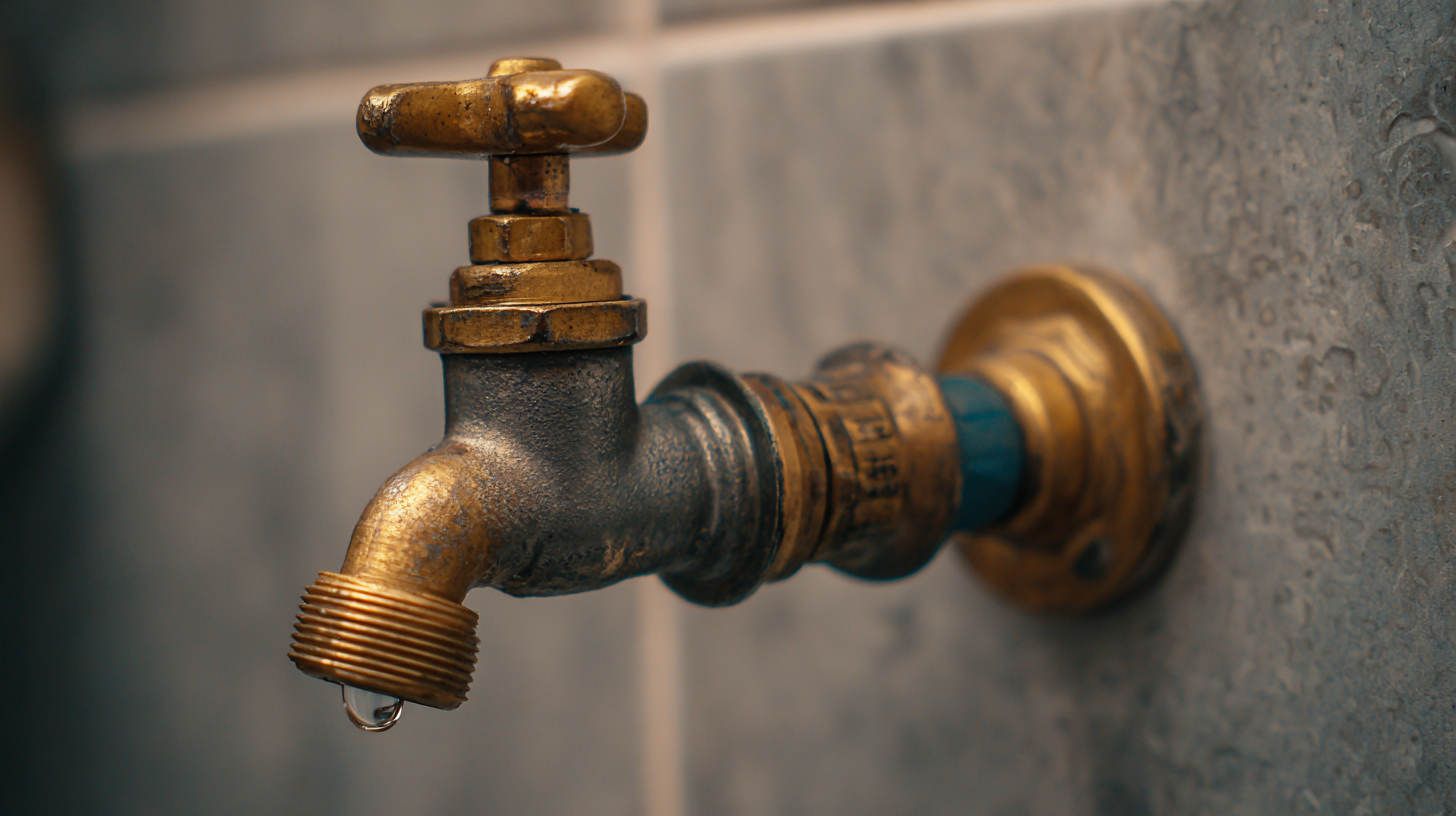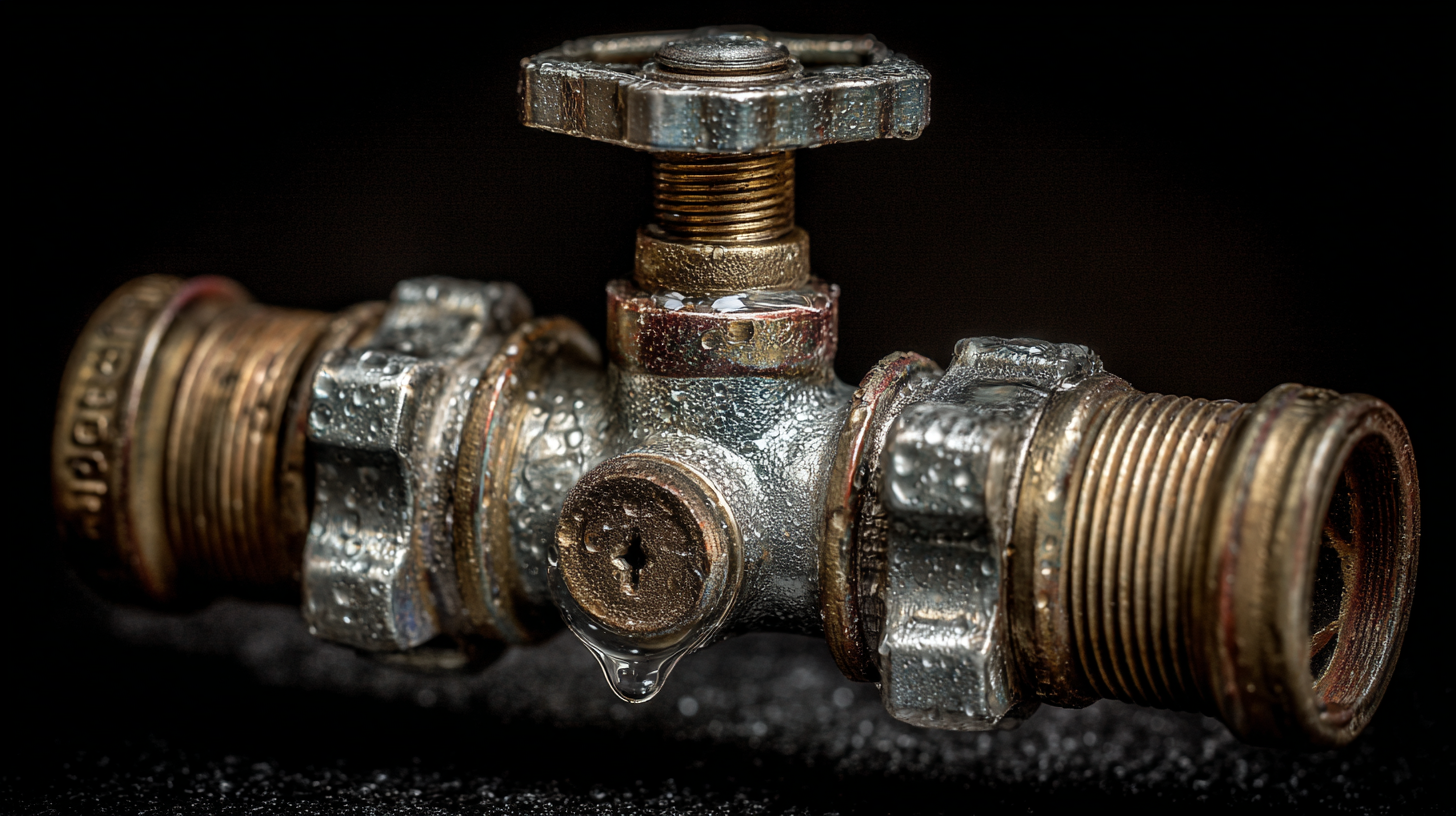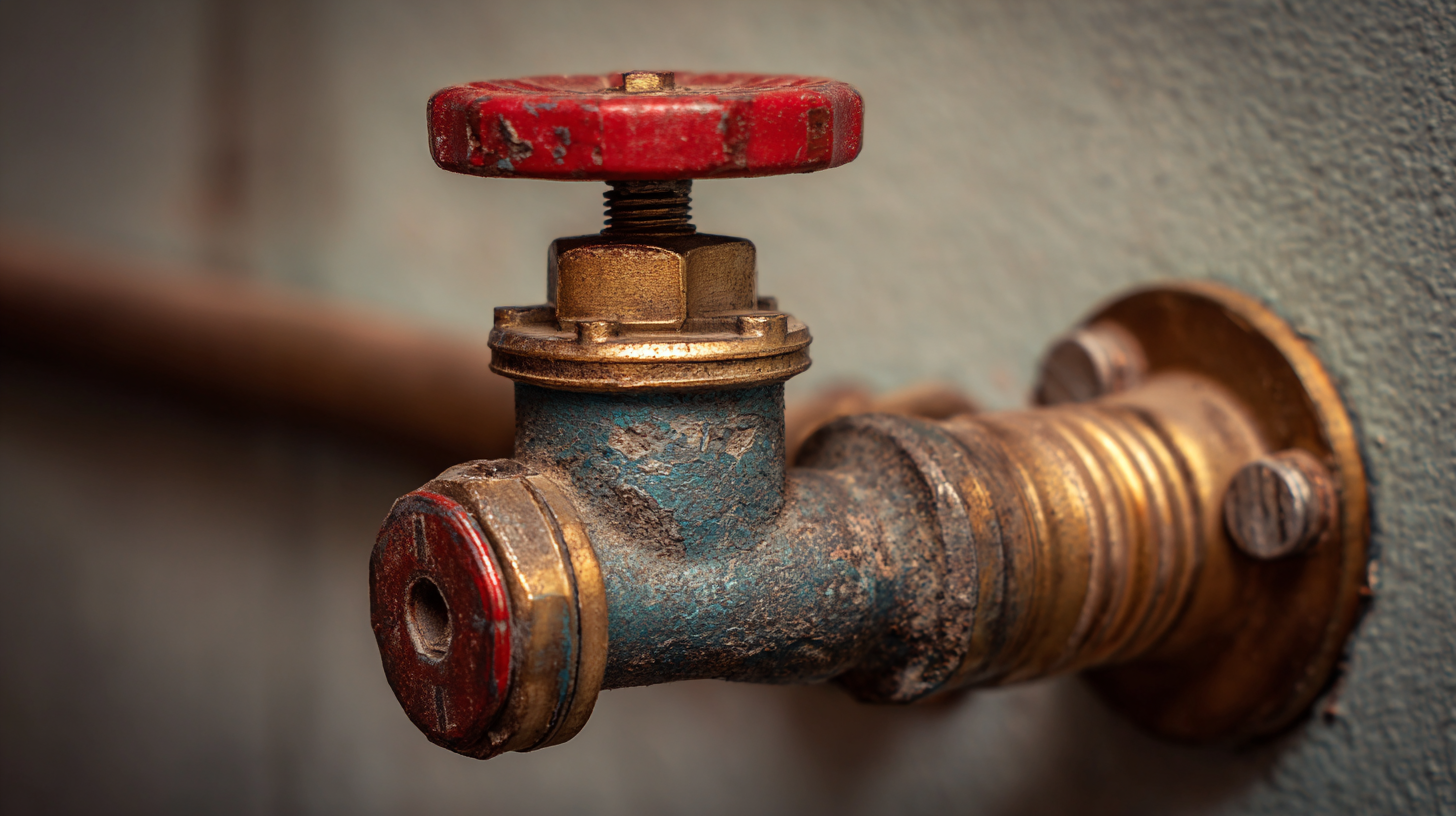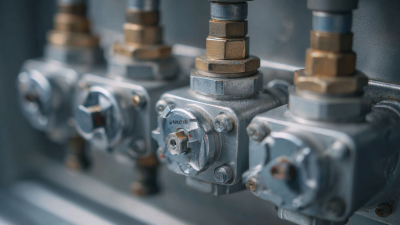Understanding the Importance of Shut Off Valves in Home Plumbing Systems: A Comprehensive Guide
In the realm of home plumbing systems, the importance of shut off valves cannot be overstated. These essential components serve as the first line of defense against potential water damage, allowing homeowners to quickly halt the flow of water in case of emergencies such as leaks or burst pipes. According to the American Society of Plumbing Engineers, nearly 60% of homeowners experience some form of plumbing issue, with water damage accounting for significant repair costs that can exceed thousands of dollars. By utilizing shut off valves strategically throughout a home, it is estimated that homeowners can reduce the risk of extensive water damage by up to 80%. This comprehensive guide will delve deeper into the functionality, types, and best practices for incorporating shut off valves into residential plumbing systems, equipping homeowners with vital knowledge to safeguard their properties effectively.

Why Shut Off Valves Are Essential for Home Plumbing Safety
Shut off valves play a critical role in ensuring safety and efficiency in home plumbing systems. They allow homeowners to quickly stop water flow during emergencies, such as leaks or burst pipes. According to the American Society of Plumbing Engineers, nearly 80% of home water damage is due to plumbing failures, underscoring the necessity of these valves in minimizing potential harm. Installing shut off valves in key locations, like the main water supply and individual appliance connections, can significantly mitigate risks and provide peace of mind.
When it comes to maintaining your plumbing system, regular checks on shut off valves are essential. Ensure that they are easily accessible and in good working condition. If a valve becomes difficult to turn or leaks, it may need replacement. It's advisable to exercise the valve periodically to prevent it from seizing up, especially if you live in areas with hard water, which can cause mineral buildup.
Tip: Always label your shut off valves, so family members know where to go in case of a plumbing emergency. This simple step can save crucial minutes that may otherwise lead to substantial water damage. Regularly reviewing their operation and accessibility can empower homeowners to act swiftly, protecting both their property and loved ones.

Why Homeowners Should Regularly Inspect Shut Off Valves
Regularly inspecting shut off valves in home plumbing systems is essential for maintaining water control and preventing potential disasters. These valves are crucial components that allow homeowners to stop the flow of water in case of emergencies, such as a burst pipe or a leaking appliance. By checking the valves periodically, homeowners can ensure they are in good working condition, reducing the risk of water damage and costly repairs.
Additionally, wear and tear can take a toll on shut off valves over time. Factors like corrosion, mineral buildup, and aging can affect their functionality. Homeowners should not only inspect the valves for any visible signs of deterioration but also test them to confirm they operate smoothly. This proactive approach helps guarantee that, when the time comes to use the shut off valves, they will function properly and provide peace of mind in managing the home’s plumbing system effectively.
Frequency of Shut Off Valve Inspections by Homeowners
The chart above illustrates the percentage of homeowners who regularly inspect their shut off valves. Regular inspections help ensure the plumbing system functions efficiently and prevent potential issues. As demonstrated, a notable portion of homeowners only inspect their valves annually or never at all, highlighting an area for improvement in home maintenance practices.
Why Shut Off Valves Help in Preventing Water Damage Emergencies
Shut off valves play a crucial role in safeguarding homes from potential water damage emergencies, particularly during harsh weather conditions like winter. When temperatures drop, water pipes are susceptible to freezing or bursting, which can lead to costly repairs and significant water damage. According to recent reports, nearly 68% of Americans face plumbing issues during the winter months, highlighting the importance of understanding and utilizing shut off valves effectively. Homeowners should know how to quickly access and operate these valves to prevent a situation from escalating.
Preparing for winter also includes regular maintenance and checks of plumbing systems. Data indicates that thousands of homeowners are unaware of how to turn off their Main Water Supply. By educating oneself on the operation of shut off valves, homeowners can mitigate risks associated with plumbing emergencies and ensure a swift response should a pipe freeze or burst. With simple precautions and knowledge of shut off valves, the threat of expensive water damage can be substantially reduced.
Why Proper Labeling of Shut Off Valves is Crucial for Quick Access
When it comes to home plumbing systems, shut off valves play a crucial role in managing water flow and preventing disasters. However, even the best plumbing system can fall short if these valves are not properly labeled. Effective labeling ensures that homeowners can quickly identify and access shut off valves during an emergency, such as a burst pipe or an overflowing sink. Knowing exactly where to turn off the water supply can save significant time and prevent extensive damage.
**Tips for Properly Labeling Shut Off Valves:**
1. Use clear, durable labels that indicate the function of each valve. Consider using color-coded stickers for easy identification.
2. Place labels at eye level for quick visibility, ensuring they are not obstructed by other fixtures or obstructions.
3. Regularly check and update labels as necessary, especially if there are changes in plumbing systems or if a valve's function is altered.
By taking these simple steps, homeowners can enhance their ability to respond swiftly in plumbing emergencies, making the home a safer place to live.

Why Understanding Valve Types Can Enhance Plumbing System Efficiency
Valves are crucial components in home plumbing systems, and understanding their various types can significantly enhance overall system efficiency. Shut-off valves, for instance, allow homeowners to control water flow, preventing leaks and facilitating repairs. By using the correct type of shut-off valve in specific areas, such as gate, ball, or globe valves, homeowners can easily isolate sections of their plumbing when issues arise, thus minimizing water waste and damage.
Additionally, recognizing the differences in valve materials can further improve plumbing performance. Brass and stainless steel valves tend to be more durable and corrosion-resistant, making them ideal for high-pressure areas. Conversely, plastic valves, while lightweight and cost-effective, may not withstand extreme conditions in certain environments. Understanding these distinctions enables homeowners to select the most appropriate valves for their systems, ensuring reliable operation and longevity while optimizing water usage and energy efficiency throughout the household.
Understanding the Importance of Shut Off Valves in Home Plumbing Systems
| Valve Type | Description | Common Uses | Advantages |
|---|---|---|---|
| Ball Valve | Utilizes a spherical disc to control flow | Main water supply, irrigation systems | Quick operation, low flow resistance |
| Gate Valve | Features a sliding gate to stop or allow flow | Water supply, sewer systems | Durability, good for on/off service |
| Globe Valve | Employs a disc and seat to manage flow rate | Regulating flow in pipelines | Precise flow control, durable |
| Check Valve | Prevents backflow within plumbing systems | Residential water heaters, sump pumps | Protects against contamination, simple operation |
| Pressure Relief Valve | Releases excess pressure to prevent system failure | Boilers, hot water tanks | Safety, prevents damage to systems |

